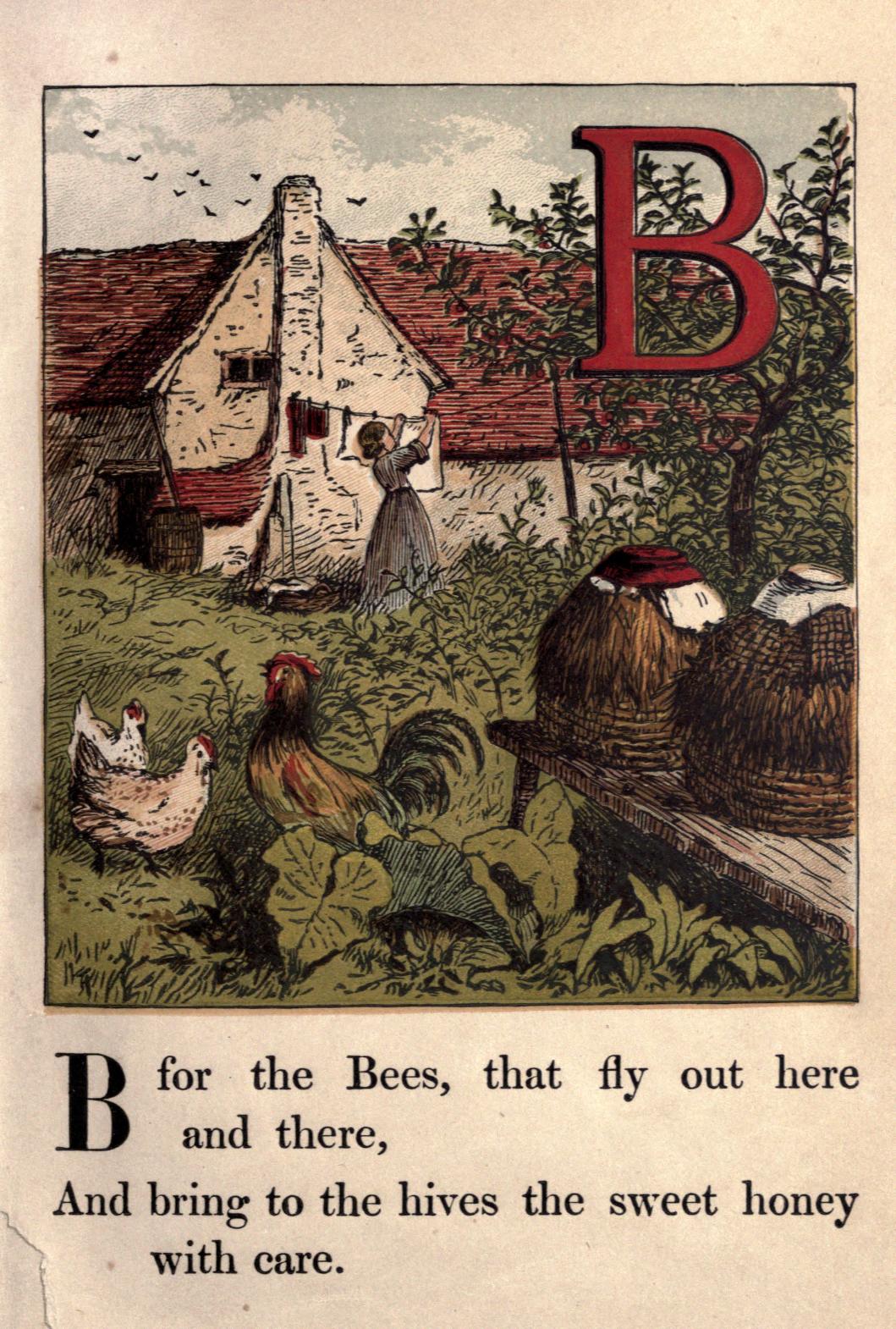An excellent op-ed ran in the New York Times recently (thanks to Lisa for the alert), and I want to make sure it doesn’t pass you by …
Our Bees, Ourselves: Bees and Colony Collapse
Mark Winston, biologist and director of the Center for Dialogue at Simon Fraser University, eloquently explains how the intricate relationships between bees, pesticides, and nature’s diversity are irrefutable indicators of human health and societal stability.
“There is a lesson in the decline of bees about how to respond to the most fundamental challenges facing contemporary human societies,” Winston writes. “We can best meet our own needs if we maintain a balance with nature—a balance that is as important to our health and prosperity as it is to the bees.”
We have much to learn from the bees. But then, we knew that, didn’t we? The question is: Will the great hive of humanity take their lessons to heart?

Image from the Child’s Coloured Gift Book with One Hundred Illustrations, 1867, via Open Library
I’m looking forward to reading Mark Winston’s forthcoming book, Bee Time: Lessons From the Hive, due to be released next month.






















































I read this article last week as well and thought to myself that we still have so much to learn from the bees. Is their colony collapse like the dead canary in the coal mine? Are we refusing to see the truth and doing our usual excuse making to explain the blunt truth? Yes, adding Mark Winston’s book to the list of must read.
I love the “B” illustration; it’s such a beautiful picture of what we ought to be doing.
As for your question about whether or not humanity’s hive will respond… I’m an optimist by nature, but I’m beginning to wonder about the great mass of indifference and ignorance around me. But I’ll keep hoping!
Many years ago, there was a nationwide organization of medical doctors who formed a group called Physicians for Social Responsibility. Their focus was nuclear weaponry. They were an active bunch and brought Hiroshima survivors to our country to tour college campuses and speak about their experience. I traveled with them up and down the East Coast to lend a hand. One of the men lost his entire family. Half of his body (and face) was terribly disfigured from the blast. At one of the question/answer sessions, a woman stood up to say to the panel of doctors something like, “It’s madness and can’t possibly be stopped, I feel so hopeless.” His reply has been my clarion call ever since. “Perhaps, but in that moment, I want to be able to turn to my children and say, “I did everything I could.'”
I’ve always acted on the belief that any social change work I participate in isn’t a function of whether or not we (I) can accomplish it. It’s a function of it being the right thing to do. (It’s very freeing not to attach to an outcome. That just gets downright discouraging at times.) I want to be able to say to MYSELF, I did everything I could.
Well said !! That victim showed true wisdom and I will try to follow that vision when I get discouraged and start to fell hopeless.
MaryJane, surely a life changing moment for you when you heard what that survivor had to say. I love your take on that : “I want to be able to say to MYSELF, I did everything I could.”. That is the best advice I have heard in ages.
A wonderful mantra. If each one of us “did what we could” I can’t begin to imagine all the good that would floe over this earth. I also use another mantra that has been part of my life as long as I can remember: “may my daily contacts with others be of a positive nature.”